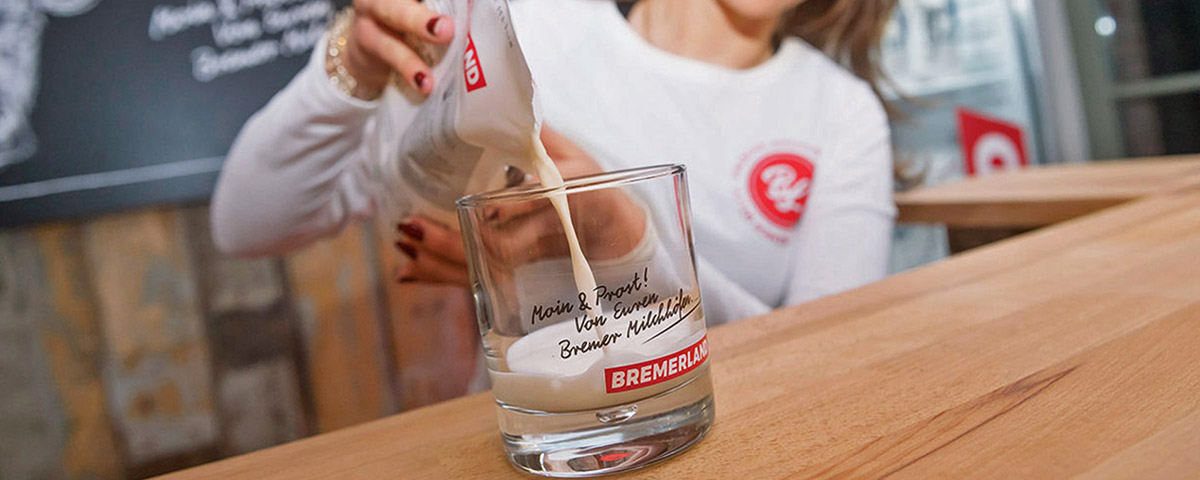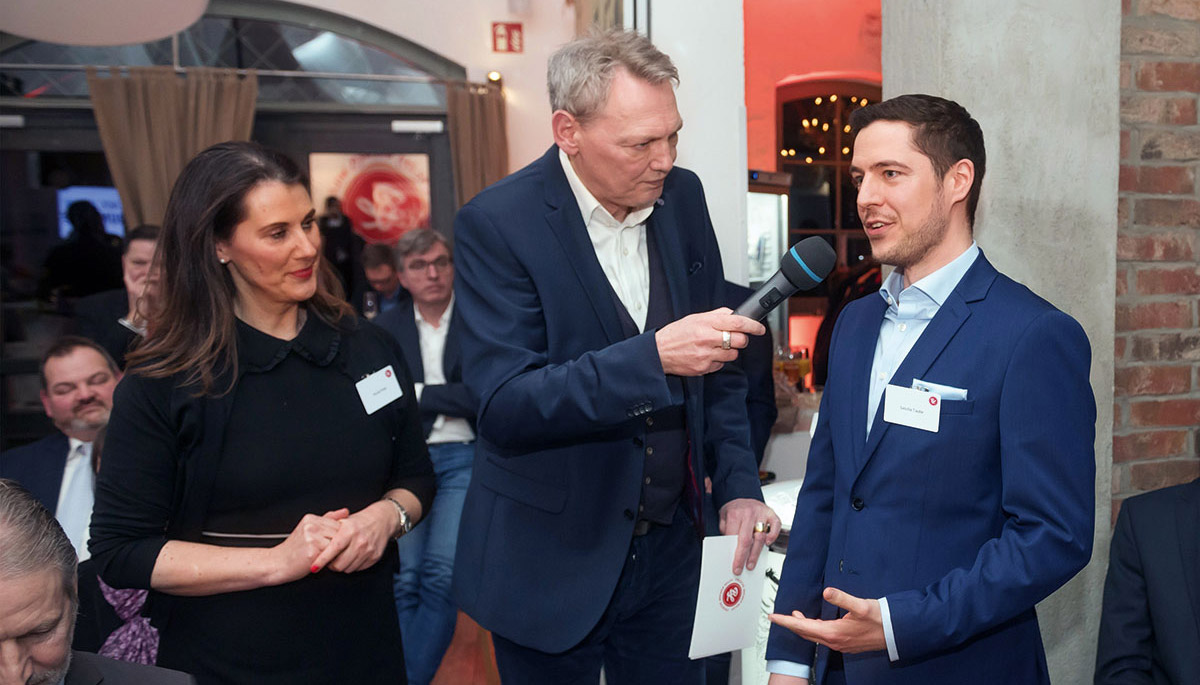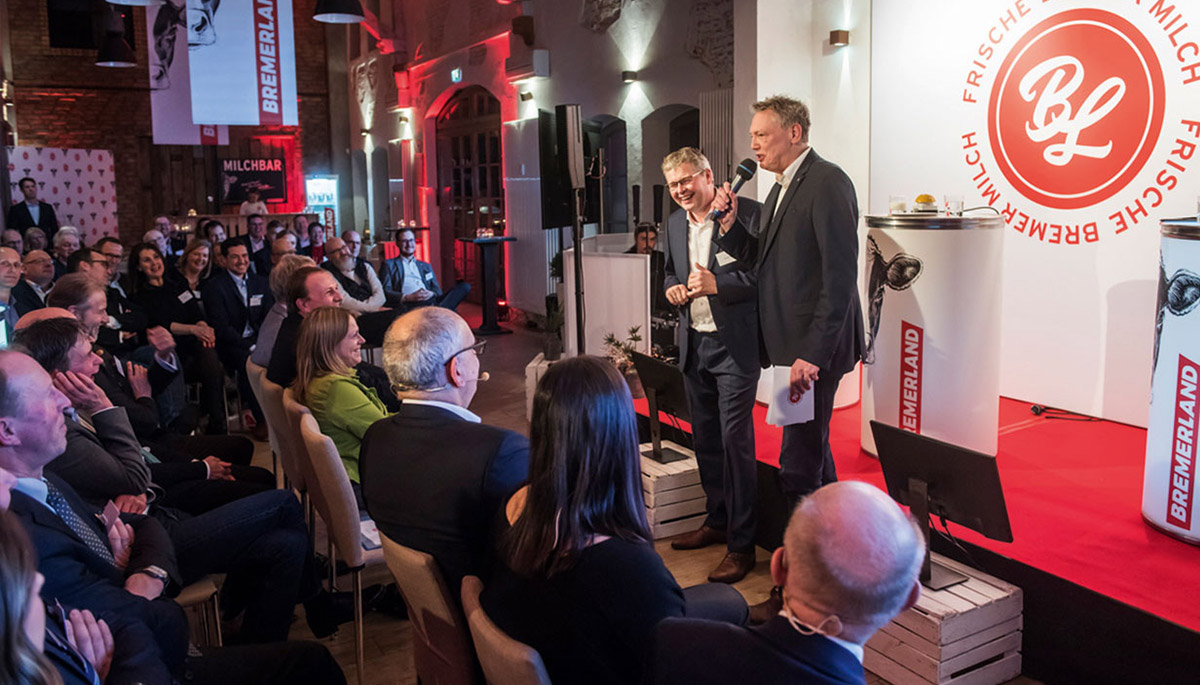A tradition comes home at last


What is Bremen all about? Ask a local and they will come up with a whole list: The town musicians in the famous fairy tale, Werder, Roland and Beck’s beer. Not to forget milk, of course!
The city is also famed for its Bremerland milk, residents say, and that’s 14 years after it disappeared from supermarket shelves. That is one of the main reasons why now, Bremerland has come back home. The DMK Group is celebrating 20 years at its site in Bremen and to mark the occasion, it has brought the famous milk brand back onto the market. Retailers have been selling the only milk made exclusively by local Bremen farmers again since April.
Bremen’s mayor Dr. Andreas Bovenschulte is thrilled. “I am delighted that part of Bremen’s tradition has returned. Especially given that this is not just a logo but a genuine regional project.“
This is also thanks to the efforts of a small group of DMK farmers from Bremen who joined forces two years ago to promote the return of Bremen’s very own milk by addressing the Bremen Chamber of Agriculture and the Senate. They founded a project group together with the DMK Group and looked into whether the regional brand would be viable. “Bremen’s citizens are enormously attached to their local brands. That doesn’t just apply to beer. Products from the region are people’s first choice, they have an extraordinarily strong bond with the city and everything that’s associated with it. More than 85% of those polled from Bremen say when they buy fresh milk, they look at whether or not it comes from their region,“ says Professor Dr. Christoph Burmann, an economist at the University of Bremen.
“We have given the people of Bremen their own milk back!“
Sascha Taube, Bremerland project manager
He assessed the potential for the brand’s return together with Professor Dr. Tilo Halaszovich from Jacobs University in Bremen. “The Bremerland brand is still one of the most popular brands in the Bremen city area among citizens who are over 40, even 14 years after the last product was sold. It is one that citizens look back on fondly,“ he said.
For DMK Group CEO Ingo Müller, one thing is crystal clear: “When shopping, many customers now consider again whether goods come from their region.“ Their decision is not only made in their hearts though, but also when they reach the supermarket. Consumers want to be able to tell at a glance what a package contains. “That’s why we deliberately opted for a new packaging design. We wanted it to appeal not only to those who are already familiar with the product from their childhood days, but also to young people in Bremen,“ says Sascha Taube, who leads the project.


Nicole Peiler, Dirk Böhling and Sascha Taube
Shoppers can buy Bremerland, the fresh milk from Bremen, either with full fat content - 3.7% – or a version with 1.5% fat. The two options are easy to identify from their different colored packaging. The full fat content milk is sold in a dark blue packet while the lower fat milk is distinguished by its lighter blue packaging.
Additionally, shoppers can clearly see a description of the contents on the front. A further feature is the innovative bag packaging, of which 40% is calcium carbonate and the rest is recyclable plastic. The bag itself is very light, weighing only 14.3 grams, and is more economical in that it uses less water and energy compared to other disposable packaging. It significantly reduces waste volumes, too, as the small bag can be folded up to take up even less space. The innovative design also means less milk remains in the empty container compared to classic cardboard packaging. The packaging was developed by Ecolean of Sweden.
Ingo Müller says, “We unite 6,000 farmers at the DMK Group. Our DMK farmers in Bremen are really backing this local project, and that sends a positive message about their profession, as they revive the Bremerland brand. As society becomes increasingly alienated from agricultural projects, this is a very important move. Consumers want to know where products are from and how they are produced. As Germany’s largest dairy cooperative, this is an important task for us.“


Ingo Müller in discussion with moderator Dirk Böhling